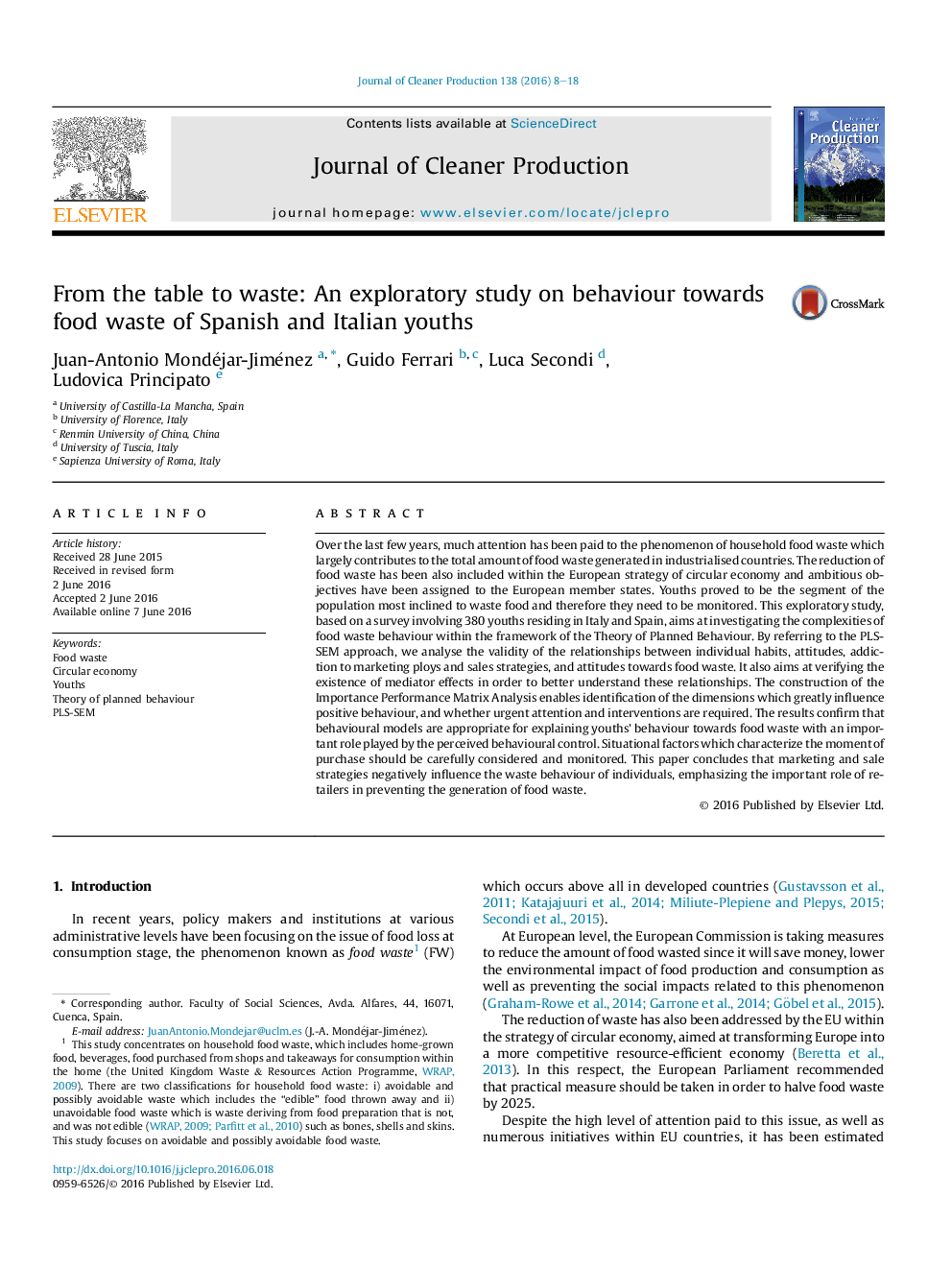| کد مقاله | کد نشریه | سال انتشار | مقاله انگلیسی | نسخه تمام متن |
|---|---|---|---|---|
| 5481578 | 1399336 | 2016 | 11 صفحه PDF | دانلود رایگان |
- Marketing and sales strategies negatively influence the conservative food waste behaviour.
- The reduction of food waste has been also included within the European strategy of circular economy.
- Behavioural models are appropriate for explaining youths' behaviour towards food waste.
- The use of the proposed model in marketing can help to identify the dimensions of behavior.
Over the last few years, much attention has been paid to the phenomenon of household food waste which largely contributes to the total amount of food waste generated in industrialised countries. The reduction of food waste has been also included within the European strategy of circular economy and ambitious objectives have been assigned to the European member states. Youths proved to be the segment of the population most inclined to waste food and therefore they need to be monitored. This exploratory study, based on a survey involving 380 youths residing in Italy and Spain, aims at investigating the complexities of food waste behaviour within the framework of the Theory of Planned Behaviour. By referring to the PLS-SEM approach, we analyse the validity of the relationships between individual habits, attitudes, addiction to marketing ploys and sales strategies, and attitudes towards food waste. It also aims at verifying the existence of mediator effects in order to better understand these relationships. The construction of the Importance Performance Matrix Analysis enables identification of the dimensions which greatly influence positive behaviour, and whether urgent attention and interventions are required. The results confirm that behavioural models are appropriate for explaining youths' behaviour towards food waste with an important role played by the perceived behavioural control. Situational factors which characterize the moment of purchase should be carefully considered and monitored. This paper concludes that marketing and sale strategies negatively influence the waste behaviour of individuals, emphasizing the important role of retailers in preventing the generation of food waste.
Journal: Journal of Cleaner Production - Volume 138, Part 1, 1 December 2016, Pages 8-18
